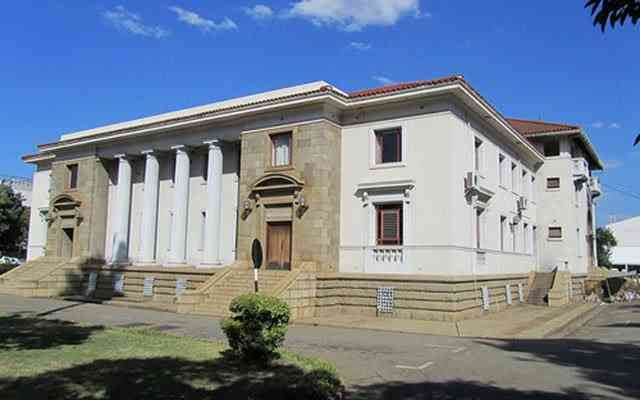
NOTHING lasts forever and political players come and go.
In August 1972, Idi Amin, the then-President of Uganda, ordered the expulsion of approximately 80 000 Indians and Pakistanis from the country.
This drastic decision was largely motivated by Amin’s desire to consolidate power and appeal to nationalist sentiments among Ugandans. He accused the Indian community of exploiting the Ugandan economy, alleging that they were monopolising trade and industry, while failing to contribute to the nation’s growth.
The Indians and Pakistanis were targeted because they were visibly dominating retail, wholesale and manufacturing spaces in Uganda.
Whilst this created the impression that they had taken over the economy of Uganda, their unbridled proliferation in all facets of the Ugandan economy meant that they were in fact taking over.
They had to be stopped and a political position was taken overnight to expel them. They left in a hurry, leaving behind their accumulated wealth in fixed assets.
The expulsion was executed rapidly and ruthlessly. Amin issued a decree that required all Indians to leave Uganda within 90 days, confiscating their properties and businesses without compensation.
This action was framed as a move to reclaim the economy for Ugandans, positioning Amin as a defender of national sovereignty against foreign influence.
- The Fiddler: If I ruled the world
- The Fiddler: If I ruled the world
- Mwonzora skeletons tumble
- The Fiddler: If I ruled the world
Keep Reading
The consequences were dire. Many Indians had been integral to Uganda’s economic framework, serving as shopkeepers, industrialists, and skilled workers. Their sudden removal led to significant economic disruption, exacerbating existing challenges in the Ugandan economy. The loss of expertise and business acumen resulted in widespread shortages of goods and a decline in productivity.
Zimbabwe
Fast forward to 2000 in Zimbabwe! During the First Republic when then president Robert Mugabe was at the helm, he embarked on the fast track land reform programme, compulsory seizing commercial farming land owned by white farmers, without compensation. He allocated to new farmers over 4 500 farms, making up 7,6 million hectares, 20% of the total land of the country.
The laws were changed to make land redistribution possible. While there was a broader consensus on the need to redistribute land, the white community in Zimbabwe stood out for its limited visible participation in the country’s political affairs.
This dynamic shifted when they were seen financially supporting the Movement for Democratic Change (MDC), an opposition party formed in 1999 to challenge President Robert Mugabe and the ruling Zanu PF party.
The MDC was co-founded by Morgan Tsvangirai, Gibson Sibanda, Welshman Ncube, Fletcher Dulini Ncube, and Isaac Matongo, becoming a formidable political force advocating for democratic reform and contesting Mugabe’s authority.
Internationally, for both Amin and Mugabe, their actions drew condemnation, with human rights organisations and foreign governments criticising the Ugandan expulsion as xenophobic and Zimbabwe’s compulsory seizure of white-owned commercial farms as racist, respectively.
Both the actions in Uganda and Zimbabwe were perceived to be and in fact ended up being economically detrimental.
These two episodes remain a poignant chapter in the histories of Uganda and Zimbabwe, highlighting the complexities of post-colonial identity, nationalism, and the consequences of political power plays.
What is evident in both cases is, politicians can easily watch certain behaviours by specific groupings within their countries take shape and at the stroke of a pen, change the course of history for political survival and pragmatism.
The United States of America
In 2020, during his first stint in the White House, President Donald Trump sought to compel a US company to acquire a stake in TikTok, citing national security concerns. His administration argued that the app, owned by the Chinese company ByteDance, posed risks regarding user data privacy and potential espionage by the Chinese government.
Trump contended that a US ownership structure would mitigate these risks and ensure that American user data remained protected from foreign interference. The administration’s push for a sale was part of a broader strategy to scrutinise and limit Chinese technology companies operating in the US.
Fast forward to January 2025, TikTok faced a temporary ban for 24 hours in the US. This action was taken amid renewed scrutiny over data security and privacy issues, exacerbated by ongoing geopolitical tensions between the US and China.
The Biden administration had revived discussions around the platform’s potential threats, emphasising the need for stricter regulations on foreign-owned apps.
The 24-hour ban served as a preliminary measure while the government evaluated TikTok’s compliance with US data protection standards.
The ban reflected ongoing concerns about the vulnerability of American users’ personal information and the potential for surveillance.
It also highlighted the complex relationship between technology, national security, and foreign influence in the digital age. The episode underscored how TikTok remained a focal point in broader discussions about digital sovereignty and the implications of global tech interdependence.
In January 2025, Trump indicated that the US was keen to have a US company own 50% of TikTok so that enforcement of US regulations around data security and privacy issues would be easier.
This is an ongoing story, which clearly indicates that when perceptions about a particular state of affairs heighten, politicians will intervene in the name of maintaining the sovereignty of their countries.
The US market is huge. Advertising revenues for TikTok emanating from the US alone are staggering, and the world is waiting to see what is going to transpire as negotiations between TikTok and the US administration continue.
The Chinese in Zimbabwe
When Mugabe launched Zimbabwe’s unwritten “Look East Policy” in 2003, it was a response to mounting international criticism and sanctions imposed due to the fast track land reform programme.
At the time, Mugabe claimed the policy would benefit Zimbabwe by fostering closer ties with eastern nations, particularly China. However, evidence on the ground suggests otherwise.
One glaring issue is the lack of a dedicated government body to monitor and evaluate the activities of Chinese entities operating in Zimbabwe.
Chinese companies have established a presence across various sectors of the economy, often competing directly with local businesses in industries that, in other countries, are typically reserved for nationals.
This article focuses on one such issue: The actions of Chinese developers in Harare, who, in blatant disregard of municipal by-laws, rules, and regulations, are transforming previously low-density suburbs into high-density areas.
These activities not only strain local infrastructure, but also raise questions about governance, accountability, and the broader implications of Zimbabwe’s Look East Policy.
The proliferation of Chinese nationals and their investments in Zimbabwe, particularly in the construction of high-density units and dormitories in low-density suburbs like Highlands, has raised a multitude of concerns among residents and local authorities.
This situation encapsulates broader themes of foreign investment, urban planning, and socio-economic dynamics in a country that has been navigating significant political and economic challenges.
Proliferation concerns
l Urban planning and compliance: One of the primary concerns is the apparent flouting of City of Harare by-laws and municipal regulations by Chinese developers.
Local residents have observed that these projects often do not comply with zoning laws, which are designed to maintain the character of neighbourhoods and ensure that developments are suitable for the area.
The construction of high-density units in low-density suburbs threatens to alter the demographic and architectural landscape of neighbourhoods that were originally designed for single-family homes.
This has led to fears of overcrowding, increased traffic congestion, strained public services and the lowering of water tables resulting in the drying of the boreholes for most residents.
There are allegations that the Chinese have a cartel that shares information on circumventing the City of Harare building and planning rules and processes. Every day they are sharpening their competencies around this, getting even more brazen in approach. Their approach is to work at supersonic speed in order to complete the project and face any objections and injunctions against the project much later on, when the effects of such legal motions are almost futile when pitted against a completed project.
The City of Harare is rarely known to order the demolition of their illegal and ordinarily obscene looking structures.
l Social implications: The construction of dormitories and high-density housing leads to a significant influx of people, which often strain local infrastructure such as mentioned before, water supply, sewage systems, and public transport.
Residents in upscale neighbourhoods such as Highlands are understandably concerned about the potential decline in their quality of life, including increased noise, pollution, and the possibility of reduced property values.
l Legal, regulatory framework: When Chinese developers act “ultra vires” (beyond their legal power) by ignoring local regulations, it raises questions about the enforcement of laws in Zimbabwe.
This situation fosters a sense of impunity among foreign investors, leading to further disregard for local governance structures.
Residents have resorted to legal action to protect their interests, indicating a breakdown in trust between the community and both local authorities and foreign investors.
l Cultural tensions: The growing Chinese presence has also led to cultural tensions. Local communities are feeling alienated by the influx of foreign nationals who are not even interested in integrating into the local community, respect local customs and traditions, do not even own a bank in the country and ship all their foodstuffs from China.
There are allegations that in Mutorashanga where the Chinese miners are depleting the Great Dyke, they have set up shops within the mine where they bring in groceries from China, pay local employees in Chinese yuan renminbi and direct the local employees to purchase their groceries from the Chinese shops within the chrome mine.
This is leading to frustration, social friction and a sense of displacement and abandonment by the government amongst local residents.
Monitoring and evaluation dept
It is high time the government of Zimbabwe set up a Monitoring and Evaluation Department within the Central Intelligence Organisation department to monitor and evaluate the business activities of the Chinese in Zimbabwe.
Conclusion
Politicians are known to do anything for political survival. Politicians do not have permanent friends nor permanent enemies, only permanent interests. One of those interests is to stay in power.
History tends to repeat itself. One day, the citizens of Zimbabwe know that there is going to be a reversal of the harm been done in their country in the name of foreign direct investment. No one has a right to ride roughshod the laws of Zimbabwe.
Ndoro-Mkombachoto is a former academic and banker. She has consulted widely in strategy, entrepreneurship and private sector development for organisations that include Seed Co Africa, Hwange Colliery, RBZ/CGC, Standard Bank of South Africa, Home Loans, IFC/World Bank, UNDP, USAid, Danida, Cida, Kellogg Foundation, among others, as a writer, property investor, developer and manager. — @HeartfeltwithGloria/ +263 772 236 341






